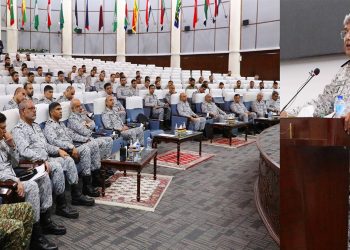The essence of a robust democracy lies in establishing a fair and equitable playing field for all political parties. This principle transcends mere legal and technical aspects; it encapsulates the core values of fair competition, equal opportunities, and respect for the people’s will. Without such a foundation, democracy turns into a hollow facade devoid of legitimacy and public confidence, with results decided by favoritism and manipulation.
In a democracy lacking a level playing field, certain parties gain an undue advantage, stifling competition and reducing elections to a mere ritual. This not only erodes public confidence in the democratic process but also fosters cynicism, apathy, and the potential for social unrest.
The upcoming general elections in Pakistan prompt crucial reflections on the fairness of the playing field for all parties. The current political environment, marred by allegations of bias and manipulation, underscores the critical importance of upholding this fundamental principle. Ensuring a just and transparent electoral process necessitates not only legal measures but also a collective commitment from state institutions, political actors, and citizens to uphold the democratic spirit.
For a democracy to function properly, all political parties must have a level playing field. It is an environment where the will of the people is paramount, competition fosters innovation, and a variety of voices can flourish. By defending this fundamental idea, we create the conditions for a more promising future in which democracy delivers on its promises of justice, representation, and progress for everyone.
The Pakistan Tehreek-e-Insaf (PTI) stands at the center of controversy, with their allegations of state-orchestrated “erasure” echoing the challenges they faced in intra-party polls and the initial denial of their bat election symbol by the Election Commission of Pakistan (ECP). A trail of doubt and legal complications continues even though the Peshawar High Court has not yet rendered a decision on the case. Swift resolution, either through an intra-court appeal by the ECP or Supreme Court intervention, is imperative to dispel doubts and ensure a level playing field; otherwise, these elections risk being reduced to mere selection.

























